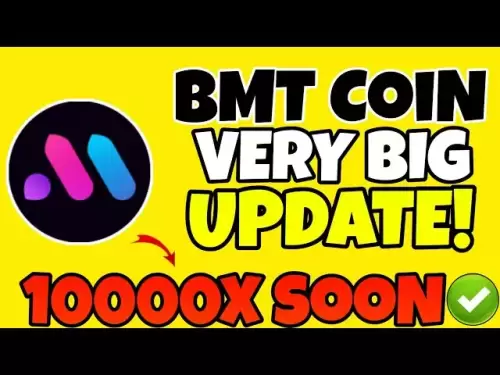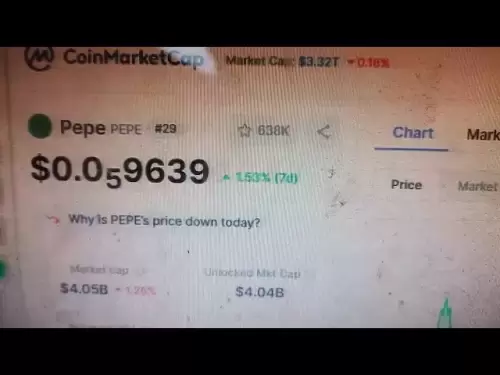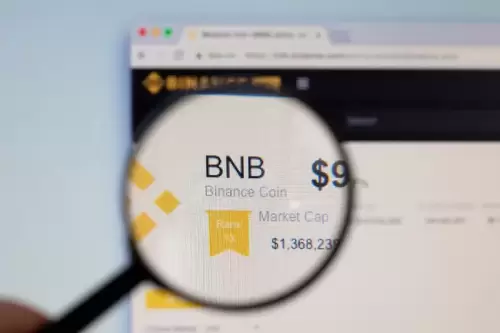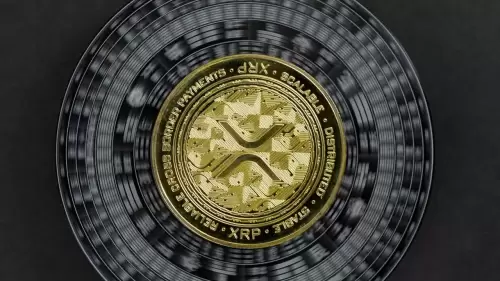 |
|
 |
|
 |
|
 |
|
 |
|
 |
|
 |
|
 |
|
 |
|
 |
|
 |
|
 |
|
 |
|
 |
|
 |
|
過去四年的重點是為美國加密產業的生存而戰。反對敵對政府和

The cryptocurrency industry in the United States has faced a hostile administration and lawfare over the last four years. But now, the industry has a more pressing task: Helping to shape the legislation and policies that will govern it for decades to come. At the core of this fight is the issue of “decentralization.”
過去四年來,美國的加密貨幣產業面臨敵對的政府和法律。但現在,該行業面臨更緊迫的任務:幫助制定未來幾十年管理該行業的立法和政策。這場鬥爭的核心是「去中心化」問題。
Put simply, decentralization is the distribution of control and decision-making, eliminating the need for a central authority – ensuring more choice, transparency, security, and resilience for users. While it may sound technical, decentralization is the core premise of blockchain technologies. The benefits of decentralization include promoting competition, creativity, and collaboration while protecting freedom and value – both financial and reputational.
簡而言之,去中心化是控制權和決策權的分散,消除了對中央權威的需要——確保使用者有更多的選擇、透明度、安全性和彈性。雖然聽起來很技術性,但去中心化是區塊鏈技術的核心前提。權力下放的好處包括促進競爭、創造力和協作,同時保護自由和價值(包括財務和聲譽)。
But why should decentralization be enshrined in law? By adopting policies that incentivize it, we can ensure three important outcomes:
但為什麼要把權力下放寫入法律呢?透過採取激勵政策,我們可以確保三個重要成果:
First, we can guard against the big, centralized companies – from Big Tech, Big Finance, and Big Entertainment – entrenching their dominance in the burgeoning blockchain ecosystem. As we’ve seen across internet, banking, and entertainment networks, centralized control has led to consolidation and value extraction to the detriment of the people who use those products. The next iteration of the internet should focus on uplifting those in Little Tech, because the world needs more options, not the same few options.
首先,我們可以防範來自大型技術、大型金融和大型娛樂的大型中心化公司在新興的區塊鏈生態系統中鞏固其主導地位。正如我們在網路、銀行和娛樂網路中看到的那樣,集中控制導致了整合和價值提取,從而損害了使用這些產品的人的利益。網路的下一個迭代應該集中在提升 Little Tech 中的人們,因為世界需要更多的選擇,而不是同樣的少數選擇。
Second, we can ensure founders and builders are rewarded for giving up unilateral control and for creating systems that function more like public infrastructure, and less like proprietary technologies. The internet rapidly evolved because entrepreneurs could build on top of shared, open protocols like email and the web. Blockchains unlock a similar, but even more expansive, world of possibilities.
其次,我們可以確保創辦人和建造者放棄單方面控制並創建功能更像公共基礎設施而不是專有技術的系統而獲得獎勵。互聯網迅速發展,因為企業家可以在電子郵件和網路等共享、開放的協議之上進行構建。區塊鏈開啟了一個類似但更廣闊的可能性世界。
Finally, we can protect consumers and promote long-term investment and building. Minimum standards of decentralization would push digital assets to function more like commodities than securities, helping to guard against volatility, scams, and the casino culture of pump-and-dump schemes – without stifling innovation. While this could be bad news for crypto hedge funds and day traders, it would be great news for those looking to build useful products on blockchains.
最後,我們可以保護消費者並促進長期投資和建設。去中心化的最低標準將推動數位資產的功能更像商品而不是證券,有助於防範波動、詐騙和拉高拋售計劃的賭場文化,同時又不會扼殺創新。雖然這對加密貨幣對沖基金和日間交易者來說可能是個壞消息,但對於那些希望在區塊鏈上建立有用產品的人來說,這將是個好消息。
Without these three incentives, the allure of centralization is too powerful for builders. Even though blockchains now make decentralization more technically possible and easier to implement at scale, it’s still far too convenient for builders to make unilateral decisions, rather than build consensus; and it’s tempting to hoard profits for a few, rather than distribute them among a community.
如果沒有這三項激勵措施,中心化的誘惑力對建造者來說就太強大了。儘管區塊鏈現在使去中心化在技術上變得更加可行,並且更容易大規模實施,但對於建造者來說,做出單方面決策仍然太方便,而不是達成共識;人們很容易為少數人囤積利潤,而不是將其分配給整個社區。
So how do we incentivize decentralization?
那我們要如何激勵去中心化呢?
We need a new “fit for purpose” regulatory framework for decentralized technologies like blockchains – one that isn’t predicated on the existence of centralized intermediaries, the way securities laws currently require. Such a framework could incentivize decentralization by reducing regulatory burdens; and by enabling broader market access for projects that both disseminate ownership and control as well as provide tailored disclosures.
我們需要一個針對區塊鏈等去中心化技術的新的「適合目的」的監管框架,該框架不以集中中介機構的存在為基礎,而證券法目前所要求的方式。這樣的框架可以透過減輕監管負擔來激勵權力下放;並為既分散所有權和控制權又提供量身定制的資訊揭露的項目提供更廣泛的市場准入。
This approach is not new – it builds on the SEC’s 2019 Framework for Digital Assets – but it also solves one of the key paradoxes that framework had introduced. The framework sought to mitigate risks to users by limiting reliance on centralized actors. But, it also incentivized projects to obfuscate their ongoing development efforts – or to even abandon work altogether – exposing users to significant risks.
這種方法並不新鮮——它建立在 SEC 2019 年數位資產框架的基礎上——但它也解決了該框架引入的關鍵悖論。該框架試圖透過限制對集中參與者的依賴來減輕使用者的風險。但是,它也激勵專案混淆其正在進行的開發工作,甚至完全放棄工作,使用戶面臨重大風險。
By reframing decentralization in terms of control – and combining control-related decentralization requirements with disclosure requirements – this new regulatory framework would empower founders to build decentralized technologies, helping them resist the convenience and ease of centralization. And it would do so without exposing consumers to the risks securities laws aim to address.
透過在控制方面重新建構去中心化,並將與控制相關的去中心化要求與揭露要求相結合,這個新的監管框架將使創辦人能夠建構去中心化技術,幫助他們抵制中心化帶來的便利和輕鬆。而且這樣做不會讓消費者面臨證券法所要解決的風險。
This approach would also be malleable enough to evolve as the industry grows. It therefore fosters innovation, accelerates the progress of decentralized technologies, and enables the crypto ecosystem to thrive in the U.S. over the years to come.
這種方法也具有足夠的可塑性,可以隨著產業的發展而發展。因此,它促進了創新,加速了去中心化技術的進步,並使加密生態系統能夠在未來幾年在美國蓬勃發展。
There will obviously be pushback from those in the industry looking to advance their own agendas and gains – but let’s not lose sight of the benefits of blockchain technologies, not just for crypto users, but for all.
顯然,那些希望推進自己的議程和利益的行業人士會有所抵制,但我們不要忽視區塊鏈技術的好處,不僅對加密貨幣用戶,而且對所有人。
If we win the battle for decentralization, we can defend the purpose of crypto.
如果我們贏得去中心化之戰,我們就可以捍衛加密貨幣的目的。
免責聲明:info@kdj.com
所提供的資訊並非交易建議。 kDJ.com對任何基於本文提供的資訊進行的投資不承擔任何責任。加密貨幣波動性較大,建議您充分研究後謹慎投資!
如果您認為本網站使用的內容侵犯了您的版權,請立即聯絡我們(info@kdj.com),我們將及時刪除。
-

-

-

- 區塊鏈活動和令牌解鎖:2025年7月的加密貨幣十字路口
- 2025-07-06 14:35:13
- 2025年7月:區塊鏈的關鍵月份,將全球事件與令牌重大解鎖融為一體。了解導航市場趨勢的見解。
-

- 特朗普的加密財富:從成員到數十億美元 - 紐約的觀點
- 2025-07-06 14:50:13
- 探索唐納德·特朗普(Donald Trump)令人驚訝的加密貨幣及其對淨資產的影響。前總統是加密王嗎?
-

-

- 比特幣,稅收和基金經理:在紐約市導航加密迷宮
- 2025-07-06 12:50:14
- 探索比特幣稅收和基金經理觀點的複雜性。政府有權獲得稅收比特幣嗎?投資時基金經理面臨哪些障礙?
-

-

- 債務上限,特朗普和比特幣的吸引力:紐約財政政策的一分鐘
- 2025-07-06 12:30:13
- 特朗普的“一個大型賬單”及其對債務上限的影響,以及為什麼比特幣現在看起來有點不錯。
-

- 阻止預售:瞄准在擁擠的加密貨幣空間中獲得高回報
- 2025-07-06 14:10:13
- 探索Blockdag的預售,潛在的回報,以及它如何與其他趨勢加密貨幣相抵觸,以尋求高ROI。





























































